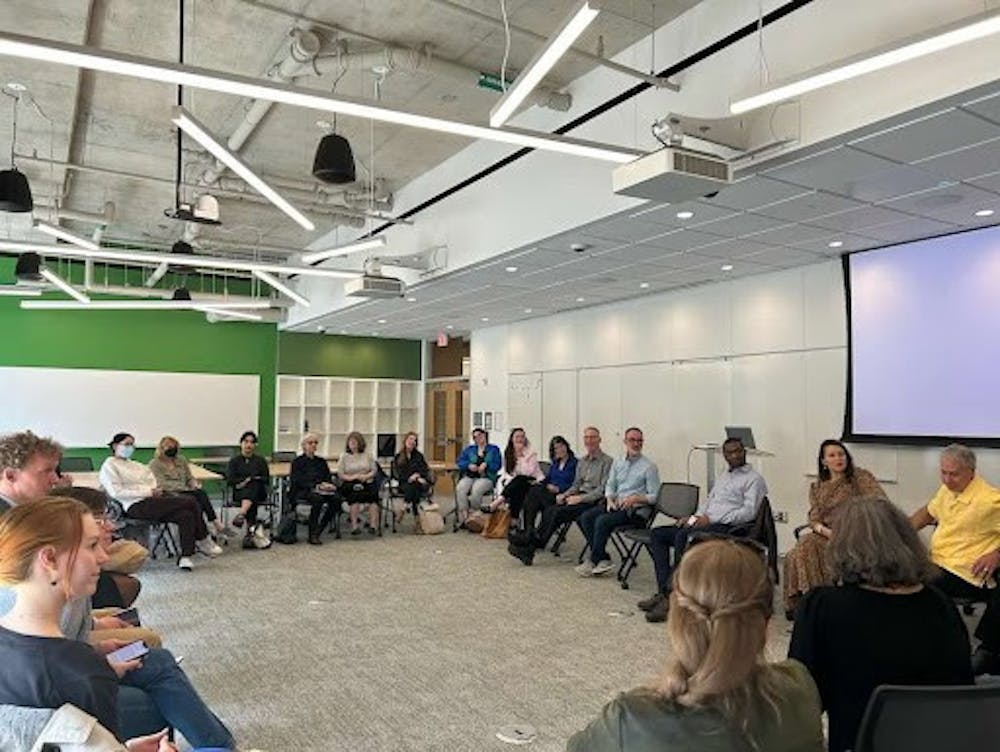American University’s Center for Environment, Community and Equity concluded its first inaugural year with a round robin of environmental justice initiatives on April 27. The event reflected a year of connections and intersections among faculty, staff and students alike.
Professors across departments spoke about their research and current projects and celebrated their own personal and scholastic milestones in and outside the classroom. Representatives from the School of International Service, the College of Arts and Sciences and the School of Public Affairs were just some in attendance.
As CECE focuses on environmental justice, many professors and scholars shared their backgrounds and the intersectional ways they push for a more sustainable and resilient future. Topics ranged from poor water quality and inadequate infrastructure in cities to the history of environmental injustice in D.C.
Some attendees discussed integrating environmental justice into research internationally in places such as China and American Samoa. However, scientific research isn’t the only medium to advance environmental justice, and many audience members highlighted artistic projects in progress.
Maggie Burnette Stogner, the executive director of the School of Communication’s Center of Environmental Filmmaking, mentioned a milestone for one of her films.
“The film that I just finished, with the help of students…I always love to bring the students in with the experiential education was ‘Upstream, Downriver’ about water equity and justice,” Stogner said to attendees. “We just got two grants to build it from a half hour, what it is today, to a full hour.”
William Snape, III, the director of the Washington College of Law’s Program on Environmental and Energy Law, announced two new initiatives WCL has implemented.
“We have an environmental justice course that we offer at least every other spring for two credits, that’s a new course taught by an alum, Karim Marshall,” Snape said. “Secondly, our program has been, as many programs do, fundraising from our alums, our adjuncts and supporters. And we did raise some money, and we have awarded six environmental justice public interest scholarships to law students this summer. It’s really exciting.”
The events focused on sharing accomplishments across various schools to encourage collaboration between schools and highlighted the importance of approaching environmental justice with an interdisciplinary lens.
In the coming year, CECE will continue to host environmental justice conversations and create a database that will document environmental efforts at AU, such as those from CECE attendees. Dana Fisher, a professor from the University of Maryland, will be taking over the role of CECE director from Simon Nicholson and leading this new charge. Fisher wants the database to become an “environmental think tank.”
“I’m thrilled to be here. I’m so excited about CECE and helping to build something big,” Fisher said.
This article was edited by Kylie Bill and Abigail Pritchard. Copy editing done by Isabelle Kravis and Stella Guzik.





